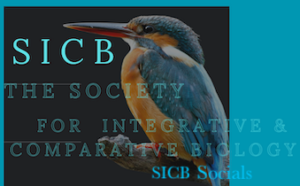About
The mission of the Society for Integrative and Comparative Biology (SICB) is to foster research, education, public awareness and understanding of living organisms from molecules and cells to ecology and evolution. SICB encourages interdisciplinary cooperative research that integrates across scales, and new models and methodologies to enhance research and education.
Publications & Media
Become a Member
The Society has approximately 3,000 members whose research interests range from organismal biology to population biology/ecology to systematics and evolutionary biology. The Society has approximately 3,000 members whose research interests range from organismal biology to population biology/ecology to systematics and evolutionary biology.
Upcoming Events
SICB 2026
January 3-7, 2026
Portland, OR
SICB News
-
May 29, 2025Flex, Flee, or Fool: How Rove Beetles Outsmart Ants with a Chemical Defense System Read More
-
May 29, 2025Doing the “righting” thing: How leaping water striders achieve a perfect landing Read More
-
May 28, 2025Level up your learning – student performance improves after evolution game Read More




